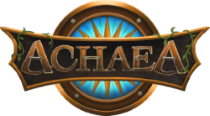Achaea Help Files
Achaea has hundreds of help files to you learn about Achaea. This is a copy of the in-game help file structure. HELP in-game will show you this same menu.
6.10.1 Using the Editor in Achaea
For things like letters, journals, and the like, we have the Achaean editor! The in-game editor is visible when not using one of the Iron Realms clients (see HELP CLIENTS for more information about this). The main help in the editor reads as follows: ---------------------------------------------------------------------- Main Help ---------------------------------------------------------------------- This is the main help screen. All commands are entered on the beginning of a new line and are preceded by a '*'. (e.g. *quit on a line by itself) Currently, there are the following commands : *help, *quit, *save, *more, *echo, *clear, *line, *insertline, *deleteline, *overwrite, *insert, *replace For more information on a particular command type *help <command>. (e.g. *help *quit) on a line by itself. ---------------------------------------------------------------------- Save (*save, *s) Usage: *save This will end the current editing session and bypass the question of whether you want to save, and simply save your work. More (*more, *m) Usage: *more This will display any text that hasn't been displayed because of the set screen length. It only displays text if there is text to be displayed. Echo (*echo, *e) Usage: *echo This will display any text that is in the current session so you can see exactly what is written. Clear Text (*clear) Usage: *clear This will erase all the text that is in the current session. It will ask you if you are sure before doing so. Go to Line (*line, *l) Usage: *line <line> This will set the current editing line to the line specified by <line>. <line> may be the number of the line to go to, or one of the words "start" or "end". Each of which goes to the corresponding line. Insert blank line (*insertline, *il) Usage: *insertline This will insert a blank line after the current line. Delete current line (*deleteline, *dl) Usage: *deleteline [<line>] This will permanently delete the current line (or the line specified). Set Overwrite mode (*overwrite) Usage: *overwrite This sets the current method of editing to overwrite, which means that any lines that may be below the current line will be replaced with any new lines that are typed. Set Insert mode (*insert) Usage: *insert This sets the current editing mode to inserting, which will insert new text in front of any lines that may be below the current line. Replace line (*replace, *r) Usage: *replace <line> <text> This will replace the given line number with the text given. <line> must be a number.
